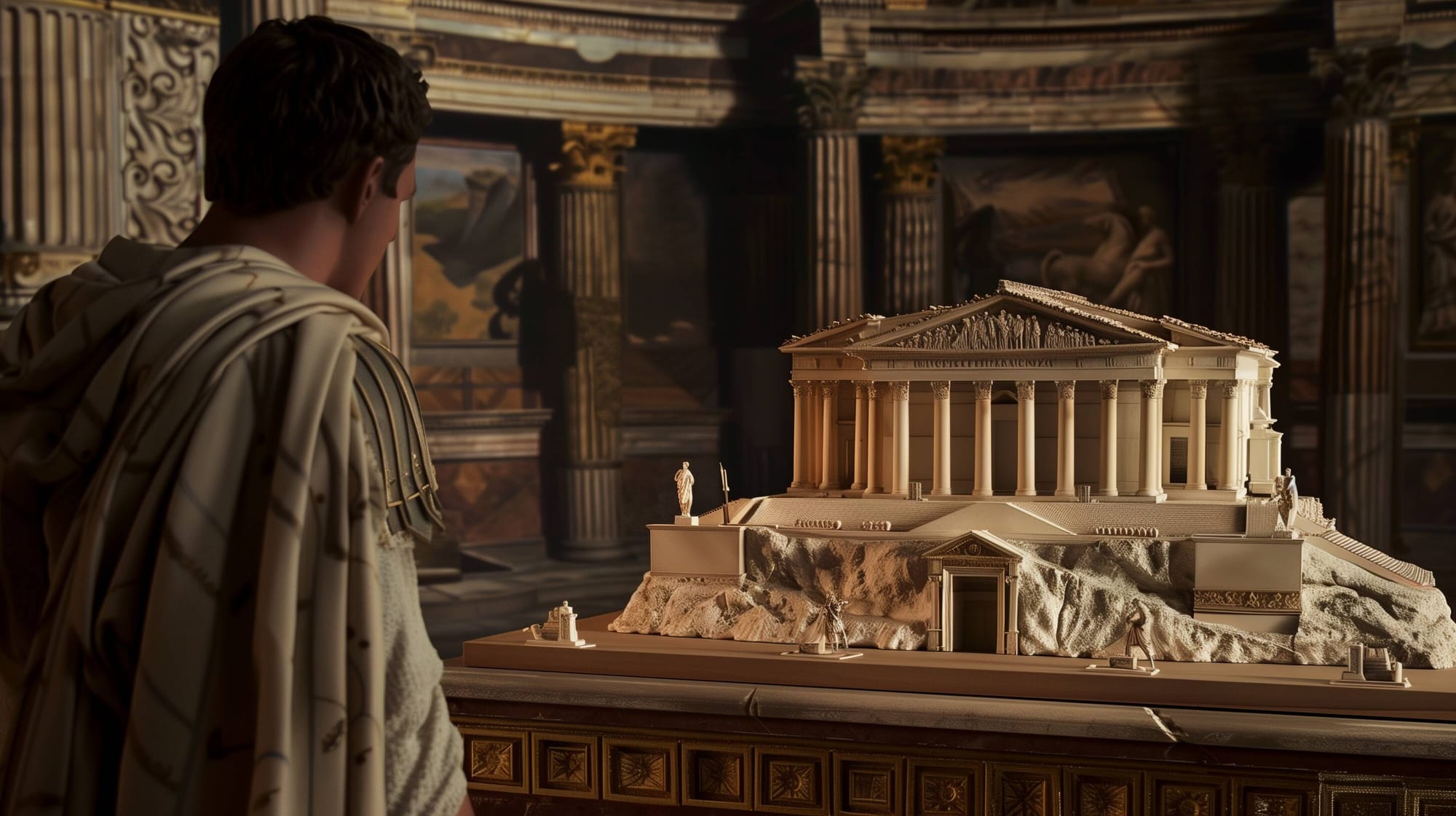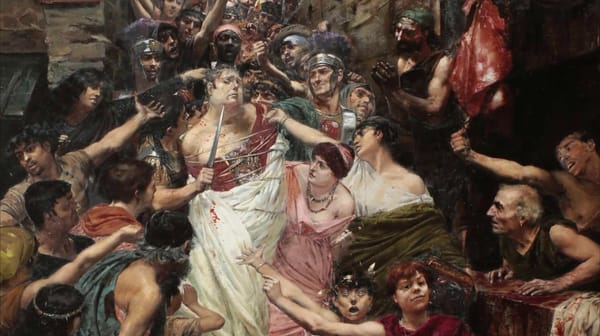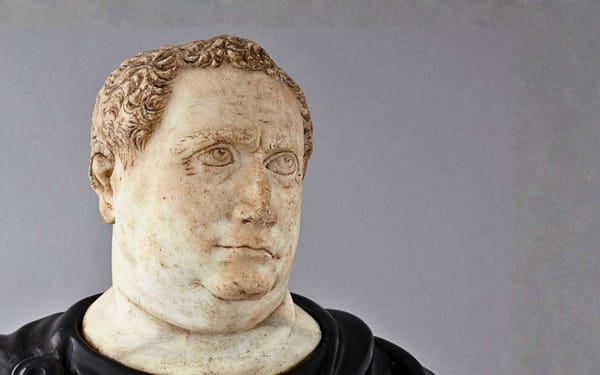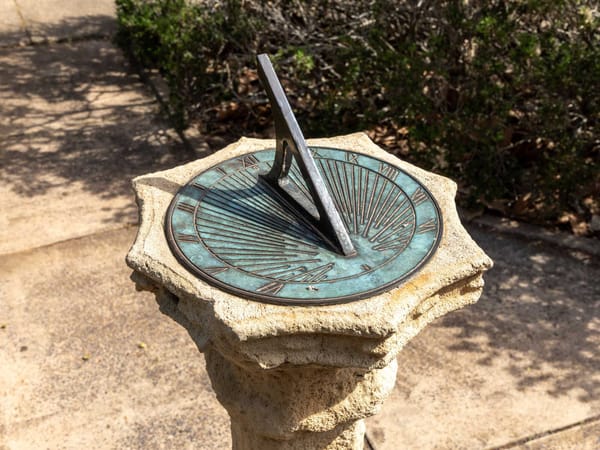The most Famous Roman Emperor Failed Assassination Attempts
The history of the Roman Empire is replete with assassination attempts, some of which failed and left intriguing tales of survival and intrigue.

The history of the Roman Empire is rife with tales of political intrigue, power struggles, and attempts on the lives of its emperors. Assassination plots were not uncommon, reflecting the intense volatility and danger inherent in holding the highest office in the ancient world.
Despite the successful assassinations that marked Roman history, such as that of Julius Caesar, many plots failed, showcasing a complex web of loyalty, betrayal, and survival. These failed attempts provide fascinating insights into the political machinations and personal vendettas that defined Roman imperial politics.
From thwarted conspiracies involving family members to plots uncovered by loyal guards, the stories of these near-misses highlight the precarious nature of power and the constant threats faced by those who dared to wear the imperial crown.
Roman Emperors expected lifespan
Despite their immense wealth and influence, Roman emperors couldn't anticipate significantly longer lifespans than their general populace, due to assassination, poisoning, and other lethal threats.
Walter Scheidel's research in "Emperors, Aristocrats, and the Grim Reaper" highlights that while natural causes and diseases claimed many lives, political violence significantly contributed to the mortality rates among the elite. Assassinations were not uncommon, reflecting the dangerous and precarious nature of holding power in ancient Rome.
For instance, the deaths of emperors such as Caligula and Commodus were results of conspiracies and violent plots, underscoring the perilous environment even at the highest echelons of power. Furthermore, poisoning, whether accidental or deliberate, was a frequent method of eliminating political rivals, as evidenced in the cases of Claudius and Britannicus.
The study emphasizes that while emperors like Augustus and Tiberius lived relatively long lives, they were exceptions rather than the rule. Most of their contemporaries, including those in high social strata, faced constant threats from both within their circles and from the broader socio-political landscape.

Assassination Attempt against Nero
Plutarch recounts the downfall of the Pisonians in his essay De Garrulitate, offering a version that differs significantly from Tacitus. However, Plutarch maintains the tension between silence and speech, secrecy and revelation, central to conspiracies.
The night before the assassination, the would-be assassin (unnamed by Plutarch) met a prisoner set to appear before Nero and whispered, "Pray that today passes by, and tomorrow you will be thankful to me." The prisoner deduced the assassin's intent and informed Nero, a move likely calculated to save his own life. The assassin was promptly arrested and tortured, but as Plutarch notes, "he denied in the face of constraint what he had revealed without constraint." Thus, his eager speech to the prisoner proved more damaging than his tortured silence before the emperor.
With Epicharis detained and Nero on high alert, the conspirators had to act quickly. Tacitus provides a detailed but ultimately unrealized plan, indicating Nero was to be attacked at the games for Ceres; Lateranus would overwhelm him, Scaevinus would strike the first blow, and Piso would wait in Ceres' sanctuary. Tacitus marvels at the conspiracy's initial secrecy across different social strata until betrayal emerged from Scaevinus' household.
The day before the planned assassination, Scaevinus had a long discussion with Natalis, sealed his will, polished a knife he revered for its nobility, and ordered his freedman Milichus to prepare bandages. Tacitus depicts Scaevinus as a generous master and Milichus as initially loyal. Milichus either remained faithful until then or only then grew suspicious, influenced by a promise of freedom. Contemplating the rewards of betrayal, he informed on the conspiracy, driven by self-preservation and possible rewards.
Milichus' wife reminded him of the many witnesses to Scaevinus' preparations, arguing that silence could be dangerous if someone else informed first. Persuaded, Milichus approached Nero with the weapon intended for the assassination. Although Scaevinus initially dismissed the evidence as circumstantial and nearly convinced his interrogators, Milichus' wife provided the crucial detail of Scaevinus' secret conversation with Natalis, both close to Piso.
This revelation led to the unraveling of the conspiracy, with Scaevinus and Natalis ultimately revealing the other conspirators under threat of torture. (Conspiracy Narratives in Roman History by Victoria Emma Pagán)

Seneca's suicide
The failed assassination attempt against Emperor Nero, often referred to as the Pisonian Conspiracy, occurred in AD 65. This conspiracy was a significant plot orchestrated by a group of Roman senators, equestrians, and members of the Praetorian Guard, who were dissatisfied with Nero’s tyrannical rule.
The plot was led by Gaius Calpurnius Piso, a prominent and wealthy Roman senator. He gathered a diverse group of conspirators, including senators, knights, officers, and even philosophers. Among them were notable figures such as the poet Lucan, the senator Subrius Flavus, and the stoic philosopher Seneca, who was Nero’s former tutor. The conspirators were motivated by a range of grievances against Nero.
These included his extravagant spending, neglect of the Senate, harsh treatment of perceived enemies, and his overall mismanagement of the empire. Many were also personally affected by Nero’s actions, such as the execution of rivals and the confiscation of property. The plan involved assassinating Nero during a public event, either at the Circus Maximus or during a religious festival, and then declaring Piso as the new emperor.
The conspirators aimed to restore the power and dignity of the Senate and end Nero’s despotic rule. The conspiracy was exposed as aforementioned, and upon hearing this, Nero had the conspirators arrested and interrogated. Following the discovery of the conspiracy, Nero launched a brutal crackdown. Many conspirators were executed or forced to commit suicide.
Seneca, although possibly not directly involved, was implicated and ordered to take his own life. Piso also committed suicide. The failed assassination attempt led to increased paranoia and cruelty in Nero’s subsequent rule.
‘Who is worthy of the name of Man, and of Roman, who does not want to be tested and does not look for a dangerous task? For the strong man inaction is torture. There is only one sight able to command the attention even of a god, and it is that of a strong man battling with bad luck, especially if he has himself challenged it.’
Seneca

Failed Assassination Attempts against Julius Caesar
After the violent death of a dictator whose rule seemed to be met with approving acquiescence by his subjects, the world is often surprised to learn about the numerous brave but unsuccessful attempts to kill him earlier. This was the case in Rome after the Ides of March.
In 47 BCE, when Caesar was in Asia Minor following the battle of Zela, Deiotarus' alleged conspiracy, which Cicero mockingly dismissed in his speech for King Deiotarus, was not the only plot. Gaius Cassius Longinus, who, like Brutus, surrendered to Caesar after Pharsalus and was pardoned, immediately plotted to kill Caesar at Tarsus.
However, Caesar landed on one bank of the river Cydnus while Cassius was waiting on the other, providing a simple explanation for the plot's failure. This story later served to demonstrate Cassius' long-standing intent to kill Caesar, establishing his claim as the First Conspirator long before Brutus entertained such an idea.
In 46 BCE, Caesar faced another assassination threat, but the account of a knife-wielding assassin sent by Antony infiltrating Caesar's house and Caesar openly accusing Antony in the Senate is questionable. Cicero's extensive letters from that year lack any mention of such melodrama, casting doubt on the story's authenticity.
In the summer of 45 BCE, as Caesar returned to Rome from Spain, Trebonius planned to kill him with Antony's cooperation, but Antony lost his nerve at the crucial moment. This failed plot explained why Trebonius detained Antony at the Senate House door while Caesar was murdered on the Ides of March 44 BCE. (The Ides of March by J. P. V. D. Balsdon)

The actual Assassination of Julius Ceasar, almost failed
Amid the extensive documentation surrounding the Ides of March, one crucial detail is conspicuously missing: the precise timing of the events. This omission is understandable given the complexities of ancient timekeeping.
According to Suetonius, Decimus Brutus arrived at Caesar's residence to escort him to the Senate around the fifth hour, which in March would be between 10 and 11 a.m. Consequently, the assassination occurred just before noon. At this time, there were no crowds exiting the theater for lunch, nor were the revelers by the Tiber River heading home yet.
However, the assassination did not occur as initially planned. The conspirators had gathered in the senate house at dawn, the usual time for Senate meetings, and called for Caesar. Perhaps they anticipated some delay from Caesar, as conducting the assassination at dawn amidst crowds heading to games, the festival, and work would have been dangerous and unsatisfactory.
Despite Caesar's delay ultimately benefiting the conspirators, his unpredictability almost derailed the entire plot. Shakespeare famously dramatized Caesar's actions on the Ides of March, but ancient sources present some largely unexplored issues regarding the exact timeline.
When the conspirators convened at dawn on the Ides of March, they were unaware of Calpurnia’s ominous dreams—visions of the pediment added to the domus publica in Caesar's honor collapsing and of Caesar being stabbed to death.
Following these unsettling dreams, Caesar performed sacrifices to seek clarification and appeasement from the gods. However, these sacrifices, interpreted by the haruspices, were unfavorable. Haruspices, experts in the Etruscan art of interpreting prodigies, advised Caesar not to leave his house.
Confusion arises in Dio's account, which mentions "the birds he used in divination," though private auspices were largely obsolete in the first century B.C. Despite Suetonius's claim that Caesar was not swayed by religious omens, it's clear that he was significantly disturbed. His epilepsy could have provided a legitimate excuse to avoid the Senate meeting.
Importantly, the omens received by Caesar were not grounds enough to cancel a Senate meeting. While auspices taken before a comitia meeting were critical, the Senate only required a brief, less significant ceremony before sessions. On this day, even that brief ceremony yielded unfavorable results. Though such omens could justify postponement, they did not necessitate it.
As Caesar hesitated and considered instructing Antony to dismiss the Senate, rumors spread that he might remain at home. Consequently, Caesar's golden chair was prematurely removed from the Senate, as it was believed he would not attend. The Senate waited for approximately five hours, revealing the tense dynamics between Caesar and the Senate.
Around 10 or 11 a.m., when the rumor that Caesar would not attend had already spread, Decimus Brutus went to Caesar's house to persuade him not to let down a fully assembled Senate that had been waiting for a considerable time. Eventually, Caesar decided to go, narrowly averting a complete failure of the conspirators' carefully laid plans. (The Ides of March: Some New Problems by Nicholas Horsfall)

Assassination Attempts against Augustus
In the first decade of Augustus' rule, which is largely documented by Cassius Dio, a significant sequence of events unfolded that shaped future historical accounts. Early in his reign (27 BC), Augustus amended the Roman constitution, reducing his dictatorial powers and declaring a restoration of the Republic.
A few years later, in 23 BC, Marcus Primus, a Roman governor, was tried for invading a neighboring country without Senate approval. During his defense, Primus implicated Augustus, claiming the Emperor had ordered the invasion, which was constitutionally questionable under the 27 BC amendments.
Augustus attended the trial uninvited and was challenged by Primus' defense attorney, Lucius Licinius Varro Murena. Primus was ultimately convicted by a divided jury. Subsequently, Varro Murena was accused of plotting to assassinate Augustus and was executed without a fair trial.
Augustus' fear of being assassinated
Around this time, the Roman Constitution underwent another revision, known as the Second Constitutional Settlement, as termed by Syme. This settlement addressed the constitutional ambiguities highlighted during the Primus trial and reinforced Augustus's position as the ultimate executive authority of the state.
During the initial years of Octavian's (later Augustus) interactions with the Senate, his feelings fluctuated between discomfort and outright fear for his life. Throughout his time as Rome's leading legislator, he frequently faced jeers and heckling from the Senate floor, both as Octavian and Augustus. The hostility sometimes escalated to the point where Augustus would leave the Senate building in anger. Despite these provocations, those who insulted Caesar were never punished, which historians often attribute to Augustus' prudence.
This tension was evident during Augustus' first significant reform of the Roman state: the Senate's revision. Augustus openly feared assassination during this period, doubling his bodyguards' pay, wearing armor under his toga, and only allowing his most trusted senatorial allies to approach him closely. Notably, the Senate opposed Augustus' legal wishes on two occasions between 30 BC and 19 BC.
As Caesar's constitutional authority was being solidified, the Senate sought to limit certain aspects of his regime. From 31 BC onwards, public works and coinage had begun to associate Augustus with deities. While he retained the title "Divi filius" (Son of the Divine), direct suggestions of his divinity were quietly phased out around 27 BC. The name "Augustus" itself implied reverence, but not godhood—not yet.
In 28 BC, aligning with the religious revival that both preceded and included the First Constitutional Settlement, Augustus reported restoring eighty-two temples under senatorial decree. The pinnacle of this building project was the Temple of Mars Ultor (Mars the Avenger). As its name indicates, Caesar had dedicated the temple's construction in 42 BC to avenging his father Julius Caesar's assassins. (Empire on Trial: The Rise and Fall of Republican Resistance in Early Augustan Rome by Spencer Yacos, University of Richmond)

One more Assassination Attempt against Augustus
The conspiracy of Egnatius Rufus is somewhat unclear because our primary source, Velleius Paterculus, presents the events in a digression on conspiracies against Augustus, rather than in his usual chronological order. After summarizing the rebellion and death of Egnatius Rufus, Velleius revisits the episode to focus on the actions of C. Sentius Saturninus, the consul in 19 B.C. who barred Rufus from running for office. To piece together the sequence of events, we must combine Velleius's two accounts with the shorter description provided by Cassius Dio.
Egnatius Rufus's career can be accurately reconstructed. Velleius indicates that Rufus intended to progress from aedile to praetor to consul. Rufus led his conspiracy after being denied the opportunity to stand for the consulship in 19 B.C. Consequently, his praetorship was likely in 20 B.C. and his aedileship in 21 B.C. As aedile, Rufus garnered significant popular support and incurred Augustus's enmity. He then served as praetor, increasing his popularity.
In 19 B.C., at the peak of his influence, Rufus aimed for the vacant consulship. Sentius, the sole consul, rejected Rufus's candidacy. Velleius does not explain Sentius's refusal but suggests Rufus's questionable past and financial instability might have played a role, and holding consecutive magistracies might have been illegal. Undeterred, Rufus continued to campaign, even amidst Sentius's threats to invalidate the election results. This led to armed conflict.
During the crisis, the Senate dispatched envoys to Augustus, who was returning from the east. The consular elections had not yet occurred, and Augustus suggested one of the envoys, Q. Lucretius, for the vacant consulship. The envoys returned to Rome ahead of Augustus, and Rufus's rebellion was swiftly crushed, resulting in the execution of the conspirators. (The Conspiracy of Egnatius Rufus and the Election of Suffect Consuls under Augustus by Darryl A. Phillips)

Assassination Attempt against Commodus
The first major crisis during Commodus' reign occurred in 182 AD, orchestrated by his sister, Lucilla. Allegedly motivated by jealousy towards Empress Crispina, Lucilla plotted against her brother. While her husband Pompeianus was not implicated, two men believed to be her lovers, Marcus Ummidius Quadratus Annianus (her first cousin and a former consul) and Appius Claudius Quintianus, attempted to assassinate Commodus as he entered a theater. However, they failed and were captured by the emperor's bodyguard.
Quadratus and Quintianus were executed, and Lucilla was exiled to Capri, where she was eventually killed. Pompeianus withdrew from public life. One of the praetorian prefects, Publius Tarrutenius Paternus, was involved in the conspiracy but his role was not discovered until later. In the meantime, he and his colleague, Sextus Tigidius Perennis, managed to arrange the assassination of the despised chamberlain Saoterus.

Assassination Attempt against Zeno
In AD 467-468, Zeno was appointed as the 'Master of Soldiers' in Thrace to counter an invasion by the Huns, led by Denzig (Densegich), the son of Attila. Aspar, a prominent German 'Master of Soldiers' in the Eastern Roman Empire, recognized Zeno as a potential rival and sought to eliminate him. Aspar orchestrated an assassination attempt using a group of soldiers, but Zeno managed to flee to Serdica (modern-day Sofia).
In AD 469, Zeno held the consulship and was subsequently given the role of 'Master of Soldiers' for the eastern provinces. In this capacity, he aimed to tackle the issue of banditry led by the Isaurian warlord Indacus. However, Zeno faced a setback when Emperor Leo I elevated Aspar’s son, Patricius, to the rank of Caesar and engaged him to his daughter Leontia. Moreover, Aspar, through his elder son Ardaburius, sought to consolidate power by gaining the support of the Isaurian guard. In response, Zeno relocated to Chalcedon to better influence affairs in Constantinople.
Aspar's efforts to secure the throne for his son angered many in Constantinople due to their Arian beliefs, which were considered heretical by orthodox Christians. This led to chaos and riots in the city. Amidst the turmoil, Aspar and his son Ardaburius were assassinated in AD 471. Subsequently, in AD 473, Zeno was appointed 'Master of Soldiers' for the Eastern Empire, taking over Aspar's position. In October AD 473, Emperor Leo I elevated his five-year-old grandson, Leo II, who was the son of Zeno and Aelia Ariadne, to the status of co-emperor.





About the Roman Empire Times
See all the latest news for the Roman Empire, ancient Roman historical facts, anecdotes from Roman Times and stories from the Empire at romanempiretimes.com. Contact our newsroom to report an update or send your story, photos and videos. Follow RET on Google News, Flipboard and subscribe here to our daily email.
Follow the Roman Empire Times on social media: